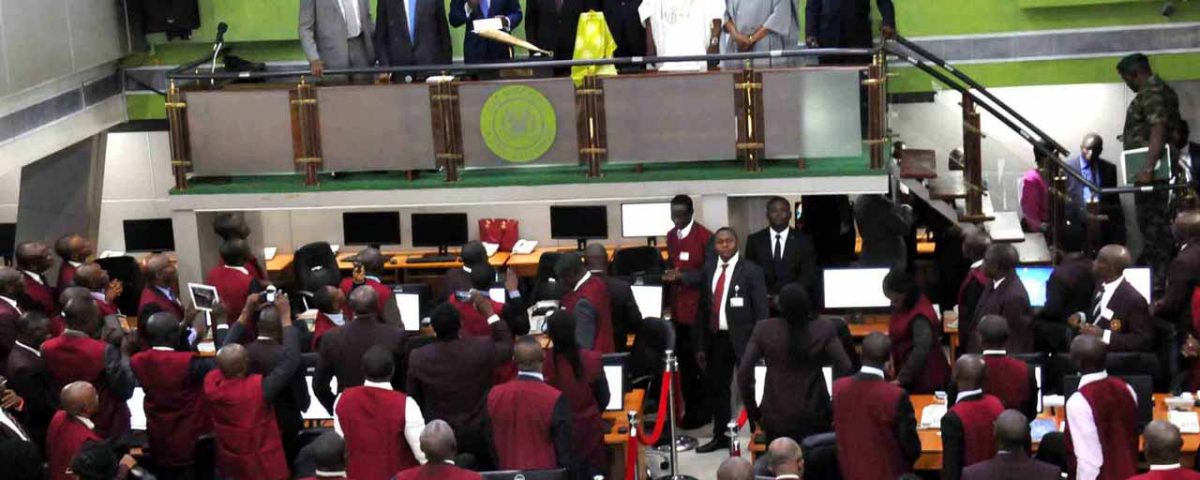Article Update: CorporateStories; NSE and the 14.29 protocol

Article Update: What To Do When You Are Faced With A Debt You Can’t Pay
October 23, 2017
Article Update: 8 stock market terms you can add to your knowledge this week
October 23, 2017This is a narration on a stock market phenomenon called 14.29. It explains how the stock prices of some listed companies act suddenly to achieve determined outcomes, often in a way that surprises small investors and stock traders. The term 14.29 was coined by a very good friend of the house named Dexter. Dex, as he is fondly called is also a phenomenon.
For ardent and eagle-eyed retail investors in the Nigerian stock market, the term 14.29, which actually means 2:29 pm, is a specific point in time during the trading day that has to be taken note of, if you trade stocks in real time. Those of us who understand this term, like to call it the 14.29 protocol, because it sounds quite snazzy.
But to explain what it means, let’s define a few terms and activities of the stock market, which you may find useful as we go on.
Bid/offer: A bid is when you place an order to buy stocks, while an offer is an order to sell shares. When total bid (buy orders) outweigh total offers for a stock, it is likely that the share price will rise because the demand for it is high.
If offers (sell order) outweigh the bids, it is likely that the share price will drop because people do not want it.
Now, to online stock trading.
Several stockbroking houses provide online trading platforms where you can buy and sell stocks on your own, without the services of a human broker. You place your bids if you want to buy, or you place an offer if you want to sell. And if your bid or offer goes through, you get an email confirming the success of the transaction, and the amount is deposited or withdrawn from your account depending on whether you buy or sell.
Online trading bears a similar characteristic to how you buy and sell stuff in the market.
Imagine that you want to buy the famous Shoprite bread which is sold hot and fresh at about 5pm daily. To be one of the people who get to buy the bread hot and fresh, you will need to be in Shoprite a few moments before 5pm otherwise, you might stay in the queue for a little longer and in some cases, even fail to buy the bread at the end of the day.
Online trading is like that too. The faster you can execute a trade the easier it is to secure or unlock value in the market.
Using the same Shoprite example, imagine a situation where bread prices are determined daily by the forces of demand and supply. That is, the opening price of bread is determined by the closing price the previous day and that the previous closing price is based on the last price bread was sold for.
If you want to ensure that the competition to buy your hot bread is reduced, then your best bet is to buy it just before they close and at a higher price. The stock market is like that too.
Share prices move when a certain quantity of stocks change hands. For some stocks, 50,000 units will have to be exchanged before a new price is set.
So, for example, if the share price of Nairametrics is N10 and 50,000 units was crossed for N10.50, then the new share price becomes N10.50.
The implication of this can run into billions of naira in market valuation for equities as you will come to understand soon. If you do not take time, a stock that opened at N10 in the morning can close at N9 by close of business, losing N1 even though it traded at average of N10 all day long. That is why sometimes, the price your stockbroker tells you they bought or sold a share for, and the closing price at the end of trading, can differ, causing you to think that you have been gamed.
You actually were not gamed. Share prices vary all day long and the closing price is the last price recorded at the approved volume change.
Now to the 14.29 protocol.
The stock market opens at 10.30am and closes at 14.30 every trading day. This makes the closing time of 14.30 very significant considering the explanation given earlier.
Many companies have realized what the effect of the closing price of their stock can be on their entire market valuation and sometimes they play the 14.29 game to ensure the most favourable outcome for their stock and their company.
At exactly 14.29, stockbrokers acting on behalf of some of these companies move into the market to the needful. They carefully watch the movement of the share prices all through the day and when they observe it could potentially be closing at a lower level, they swoop in.
First, they use the speed of the market to ensure that no one gets to the queue before them. And then, they use the sheer might of their capital to bid for the stock at a price and volume that will change the price of the stock in their favor.
So, imagine that Nairametrics opened at a share price of N10 and we want it to close higher at N11.
However, during the course of the trading day, the share price drops below N10 as offers outgun bids. To ensure that it hits the strike target of N11, the ‘ghosts’ of the stock market will show up, placing bids at higher prices and mopping up the offers.
That action attracts a positive reaction from traders and in line with rational human behavior, other traders start to also bid slightly higher or at least close to the current share price. In the event where the ghost realizes that the share price will close below their target, they wait till 14.29 and then strike.
So as an innocent on-looker, you may notice that a stock is trading at N9.95 by 2.25pm, just 5 minutes before the market closes. You see offers (sellers) but no bids (buyers) and then conclude that the stock will close at N9.95. But unknown to you, the ghost has a different idea. When they see that no one is bidding, they appear at exactly 14.29pm and mop up the shares on offer at N10, thus ensuring that the share price closes at N10 and not N9.95.
That 50kobo gain is worth billions of naira in the greater scheme of things. So “market makers” as some ghost are legitimately referred to, can swing the share price of a company to any direction depending on their goal.
So, next time you see a stock on a losing streak for most of intraday trading but closed higher or neutral, remember the phenomenon called the 14.29 protocol. The ghosts have simply moved in to guard what it “theirs”.
As a small investor, you are just a spectator in the grand scheme of things. You can only hope that your interest aligns with theirs.

